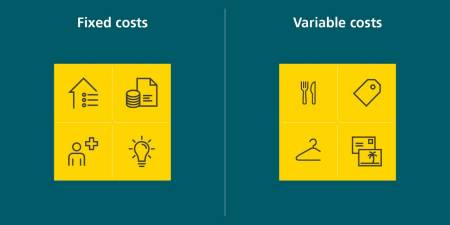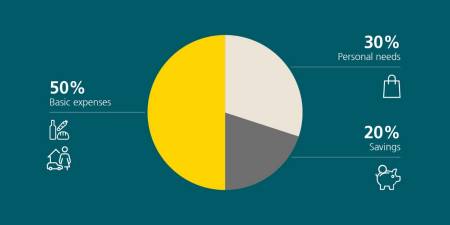Part 1: Why you shouldn't put off saving money
Live in the here and now or save for the future? Many of us find it hard to balance our long-term goals against our short-term needs. At the same time, we know we need a financial cushion for when life doesn't go as planned. This can happen all of a sudden. An unforeseen event, such as illness, an accident or the loss of a job, can hit us at any time and can be very expensive and financially stressful.
But we don't always want to save for an emergency. After all, there are other good reasons not to live from month to month – and some very valid savings goals: Do you want to take the plunge into self-employment? Buy a new car? Take a longer holiday for a change? Or move to your own home in the near future?
Our detailed guide tells you what you need to know about managing your money successfully so you can have more for the things that are really important to you. What you will learn in our guide:
- Identifying unnecessary expenses
- Getting an overview of your finances
- Setting goals
- Motivating yourself to actually achieve these goals
- Useful tips
It goes without saying that saving money doesn't just mean putting it in a savings account. After all, conventional saving is hardly worthwhile in the current interest rate environment. And finally, you have many options for increasing your long-term savings with interest and possible dividends – ensuring you can afford a little more. We will also show you how that works. Let's get started!








